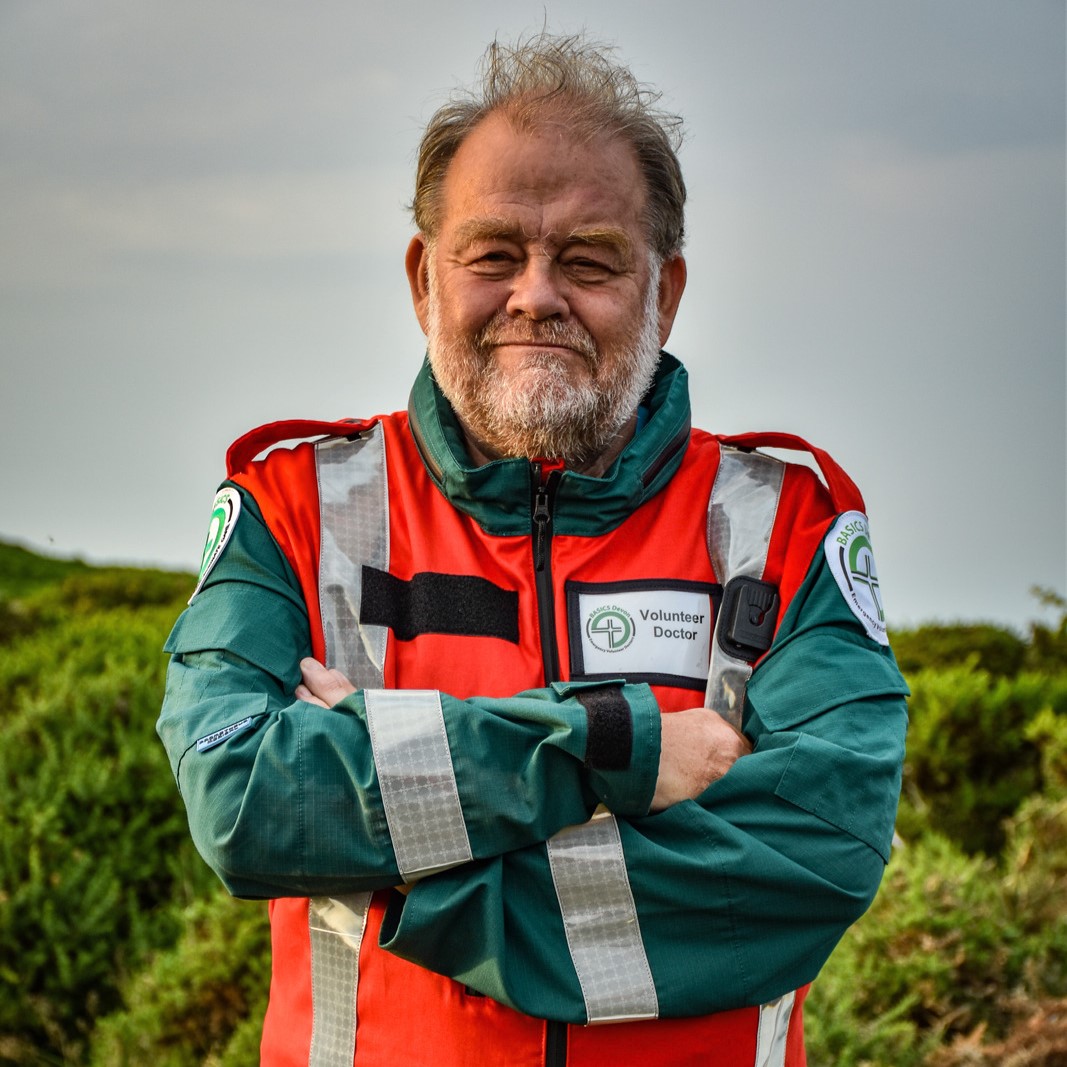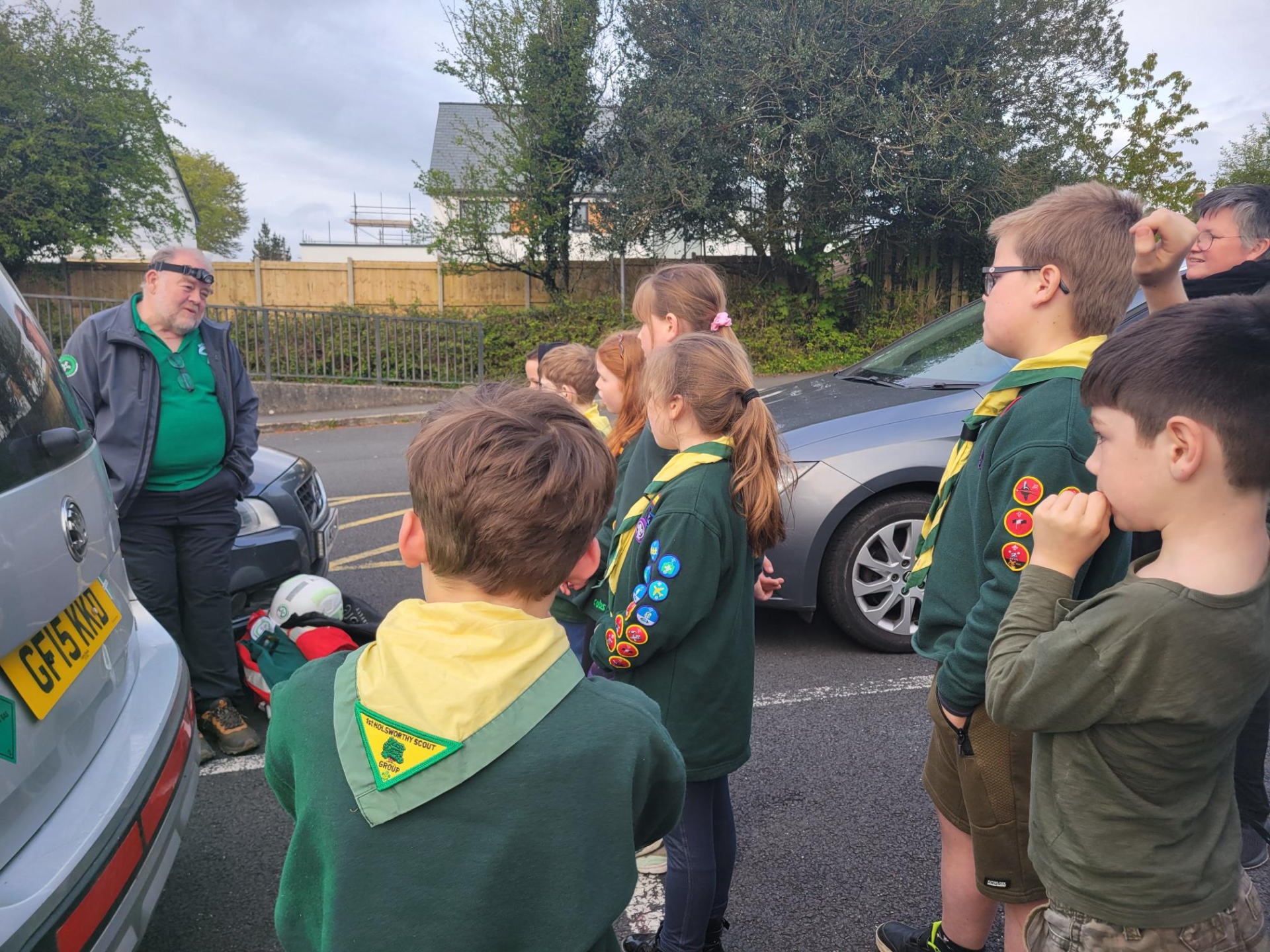
Some of the BASICS Devon volunteers - Alex Rowe, Simon Scott-Hayward, Ian Higginson, David Hillebrandt, Glenda Cooper, Marc Epps, Fred Declerck and Tom Owens. Credit: BASICS Devon
As the volunteers of first responder charity BASICS Devon celebrate receiving the King’s Award for Voluntary Service today (Friday, November 14), one North Devon doctor has been reflecting on more than 30 years as an emergency medic.
Dr David Hillebrandt from Holsworthy has been a volunteer with BASICS Devon for three decades and is still ready to drop everything and head out to serious medical emergencies or accidents in some of the most remote parts of the county.
If requested by the ambulance service, often the BASICS Devon volunteers can be the first on scene, with their emergency care training possibly being the difference between life and death for those most in need.
READ NEXT: Devon’s life-saving volunteer heroes honoured with the King’s Award
Dr Hillebrandt was a Holsworthy GP for many years and although now semi-retired he still does some locum work in the area.
Speaking to the North Devon Gazette today, he welcomed the news of the King’s Award – the highest possible award for voluntary service organisations – and said it was an acknowledgement of ‘more than just the doctors’.

Above: Dr David Hillebrandt is a semi-retired Holsworthy GP and a BASICS Devon volunteer for more than 30 years. Credit: BASICS Devon
Dr Hillebrandt said: “It’s a lovely gesture in recognition of not just the work we as clinicians put in, but also the small support team we have, our treasurer, trustees and our PR manager and fundraiser.
“Also, which does not get mentioned, it’s our partners who put up with us getting out of bed in the middle of the night, or going out for a meal and then saying ‘sorry, I am leaving’.
“Or if you have children - mine were quite used to me suddenly disappearing. When they got old enough they sometimes ended up coming out with me as there was no one home to look after them.”
He was originally a member of the Tamar and Torridge Immediate Care Scheme, which became part of the larger BASICS Devon 33 years ago when it merged with Plymouth Immediate Medical Support.
READ NEXT: Car crash survivor who learned to walk again taking on sponsored trek for lifesavers
Dr Hillebrandt said he decided to take up the role to pursue an interest in emergency medicine, explaining: “At that time, Holsworthy Medical Centre had the ambulance station built into the same building and sometimes crews would shout up the stairs they wanted some help, or we would shout down the stairs we needed some help, so it was happening anyway and in those days a rural GP was on call all the time anyway.
“I do it because I enjoy it; it’s a way of using the skills that I have and I believe it’s a value to our local community. Holsworthy is a fairly rural community and it’s nice to be able to do something to help locally.
“You see tragedies, but you also see very rewarding outcomes, especially because as a GP you may end up supporting them through their rehabilitation afterwards, or if they pass away, you end up supporting the family.”
This year so far, the BASICS Devon team has responded swiftly to 321 emergencies — 111 of them at night — covering more than 4,500 miles to save lives.
Dr Hillebrandt continued: “The ambulance service are selective about what they will call us for, they know our skills. I am also aware of the majority of 999 calls that come in for my area.
“If I think I know that stretch of road, or whatever, I will radio in and offer help. Often we are there before the ambulance service. But often we might do very little clinically, except keep everyone safe until more help arrives.
“The joke is we carry about 10,000 pounds of equipment and on most incidents, the most you will use is a reflective jacket and a head torch at night!
“If you are working with the helicopter service you may have a doctor there or not, but you would have two very experienced critical care paramedics, so sometimes the most you can do is discuss the treatment and share it three ways. Paramedics are very good at acute extreme emergency care.
“Sometimes you can prevent someone from having to go to hospital as you can work out different ways of dealing with it and being able to avoid a long ambulance journey and hours in A&E.”

Above: Dr David Hillebrandt speaking to young visitors from the 1st Holsworthy Scout Group about the work of BASICS Devon. Credit: BASICS Devon
BASICS Devon also focuses on education and volunteers will regularly speak to community groups such as Scouts or the Women’s Institute.
Dr Hillebrandt said: “We attend quite a lot of agricultural incidents in North Devon, which is very different to urban doctors doing the same job and as part of our educational role we are very happy to talk to the agricultural sector, especially Young Farmers groups.
“One of the simplest things we teach them is how to get across the information that’s needed if they have to call someone and how to call an ambulance. That may be covering clinical aspects, but also key things such as access and the exact location, especially in remote areas.”
BASICS Devon is run solely through public donations or local fundraising. To donate or learn more about the charity, visit https://www.basics-devon.org.uk or follow @BASICSDevon on social media.
Subscribe or register today to discover more from DonegalLive.ie
Buy the e-paper of the Donegal Democrat, Donegal People's Press, Donegal Post and Inish Times here for instant access to Donegal's premier news titles.
Keep up with the latest news from Donegal with our daily newsletter featuring the most important stories of the day delivered to your inbox every evening at 5pm.